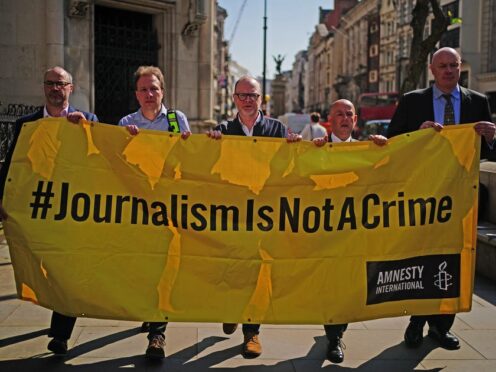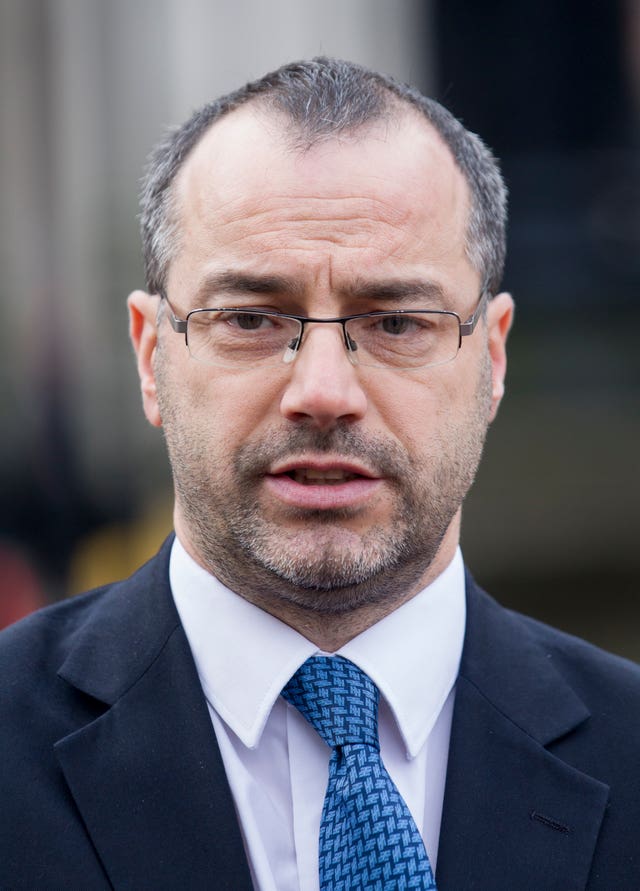
Police in Northern Ireland are facing heavy criticism following court claims that intelligence officers routinely accessed the phone data of journalists in the region.
The National Union of Journalists (NUJ) accused the Police Service of Northern Ireland (PSNI) of “shocking and despicable” behaviour.
Ian McGuinness, Irish organiser of the NUJ who attended Wednesday’s hearing of the Investigatory Powers Tribunal (IPT) in London, voiced his concern at the revelations aired in court.
“It is the type of behaviour we would expect in an authoritarian state and not a modern democracy,” he said.
“Journalists exist to hold power to account and that includes writing stories about the PSNI which that force may not like.
“Writing a story about the PSNI and protecting your confidential sources whilst doing so is not a crime.
“The NUJ is calling, yet again, for the PSNI to come clean.
As it emerged Police Service of Northern Ireland regularly spied on journalists, NUJ Irish Organiser Ian McGuinness said: “This is shocking and despicable behaviour by the PSNI. It is the type of behaviour we would expect in an authoritarian state and… https://t.co/Ik4KCvCqMi
— NUJ (@NUJofficial) May 8, 2024
“In particular, the force needs to state when it started spying on multiple journalists’ phone data, who the journalists were, how many times each journalist was spied upon, and must give a commitment that it will desist from doing this ever again, simply to uncover legitimate sources for stories.”
Amnesty International also raised serious concerns about the disclosures.
Patrick Corrigan, Amnesty’s Northern Ireland programme director, said it appeared there had been “industrial-scale spying operations” against journalists.
“Today’s evidence is explosive,” he said after attending Wednesday’s hearing.
“The Investigatory Powers Tribunal has received written evidence from Durham Constabulary which points to the PSNI undertaking routine, six-monthly, industrial-scale spying operations against those it considered to be ‘trouble-making journalists’.
“This is a chilling revelation that has only emerged through lengthy court proceedings.
“That such clearly unlawful acts appear to have been custom and practice in the PSNI would demonstrate a complete contempt for the principle of press freedom. There must now be full accountability.

“It is time for the chief constable (Jon Boutcher) to come clean about the extent of police spying operations against journalists, lawyers and others.
“Meanwhile, we would urge all journalists in Northern Ireland who suspect they may have been among those targeted by the PSNI for covert surveillance to lodge complaints with the Investigatory Powers Tribunal urgently.”
SDLP leader Colum Eastwood has branded the revelations a “scandal” and called for full disclosure of the truth from the police and intelligence services involved.
Mr Eastwood, who joined reporters Barry McCaffrey and Trevor Birney at the Royal Courts of Justice for the latest hearing in the IPT case, said: “The widespread, systemic and routine surveillance of journalists and others undertaking public interest investigations in Northern Ireland has been nothing short of a scandal.
“Surveillance by police and intelligence services has been used as a form of summary punishment against those seeking to shine a light on injustice or wrongdoing and it is absolutely unacceptable.
“The process of this hearing itself has underscored the approach from state agencies, which has been to frustrate the administration of justice with late disclosures and obfuscation.
“We stand with Trevor, Barry and all those who have undertaken public interest journalism in the north – they have challenged authority and the use of power in the interests of people who often feel powerless.”

Enjoy the convenience of having The Sunday Post delivered as a digital ePaper straight to your smartphone, tablet or computer.
Subscribe for only £5.49 a month and enjoy all the benefits of the printed paper as a digital replica.
Subscribe